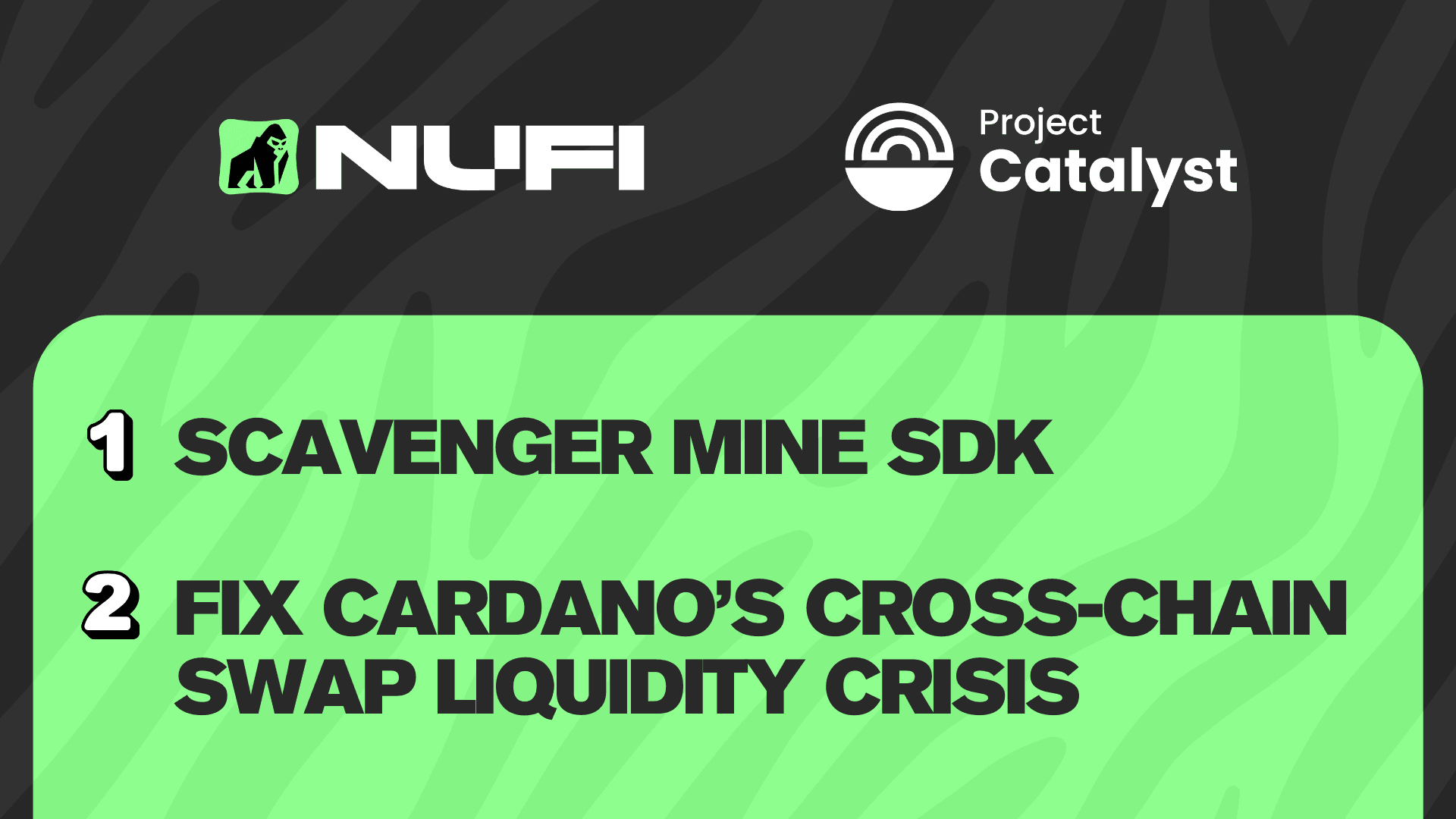What is a Crypto Wallet? Basics Explained
9 min read
Jul 16, 2024
Explore what a crypto wallet is and how you can use it to dive into the Web3 space.

Crypto wallets are an essential part of the crypto world and it is almost impossible to dive into the Web3 space without having one. Let's have a look at what a crypto wallet is, the types of crypto wallets, and much more.
Definition of a Crypto Wallet
A crypto wallet is a digital wallet that allows you to store, send, and receive cryptocurrencies securely. It is a software program or physical device that holds your private keys, which are essentially the passwords that give you access to your digital assets.
Read more: What is Solana Crypto?
Without a crypto wallet, you cannot participate in the cryptocurrency ecosystem or take advantage of the benefits of decentralized finance (DeFi) space.
What is a Crypto Wallet?
A crypto wallet is a digital storage solution for your cryptocurrencies or non-fungible tokens (NFTs), similar to how a physical wallet stores your cash, credit cards, and other valuables. However, instead of holding physical money, a crypto wallet stores the private keys that grant you access to your digital assets on the blockchain.
The blockchain is a decentralized, distributed digital ledger that records all cryptocurrency transactions. Each cryptocurrency transaction involves a transfer of value from one wallet address to another. A wallet address is a unique string of characters, similar to a bank account number, that represents your crypto wallet on the blockchain.
Example of a wallet address: 0x0b4013bB6011F8Cde264c0f2935079F7B402b040
Your crypto wallet does not store your actual coins or tokens; instead, it stores the private keys that allow you to access and manage your cryptocurrency holdings on the blockchain. Think of it like a key ring that holds the keys to your virtual safety deposit boxes where your digital assets are securely stored.
What is NuFi Crypto Wallet?

NuFi wallet is your safe and secure multichain crypto wallet, which you can use to swap crypto for crypto, stake cryptocurrencies, or simply access the Web3 space with our social login. Easily access millions of digital assets across multiple blockchains.
You can install NuFi wallet as a browser extension in 10 seconds and use it for free. Try it out now.
How Crypto Wallets Work?
Crypto wallets work by generating and managing pairs of public and private keys. A public key is a unique string of characters that serves as your wallet address, which you can share with others to receive cryptocurrency payments. The private key, on the other hand, is a secret code that grants you access to your wallet and the ability to send cryptocurrencies from your wallet.
When you want to send cryptocurrencies from your wallet, your crypto wallet software signs the transaction with your private key, providing mathematical proof that you own the funds you are trying to spend. The transaction is then broadcasted to the blockchain network for validation and inclusion in the next block.
Crypto wallets also allow you to monitor your cryptocurrency balances, track your transaction history, and manage multiple cryptocurrency addresses and accounts from a single interface.
Crypto Wallet Pros and Cons
Crypto Wallet Pros
Security: Crypto wallets provide a secure way to store your digital assets, protecting them from unauthorized access or theft.
Ownership: With a crypto wallet, you have complete control and ownership over your cryptocurrencies, unlike traditional banking where a third party holds your funds. This only applies to Web3 wallets like Metamask, NuFi, or Phantom. Not crypto exchange wallets.
Accessibility: Crypto wallets are accessible from anywhere in the world, as long as you have an internet connection and your private keys.
Privacy: Certain types of crypto wallets, such as non-custodial wallets, offer enhanced privacy by allowing you to manage your funds without providing personal information.
Crypto Wallet Cons
Responsibility: While crypto wallets offer greater control, they also come with more responsibility. Losing your private keys can result in the permanent loss of your cryptocurrencies.
Learning curve: Setting up and using a crypto wallet can be challenging for beginners, as it involves understanding complex concepts and taking security precautions.
Compatibility: Not all crypto wallets support all cryptocurrencies, and you may need multiple wallets to manage different digital assets.
Network fees: Sending and receiving cryptocurrencies often involves paying network fees, which can vary depending on the blockchain and network conditions.
Why are Crypto Wallets Important?
Crypto wallets are crucial components of the cryptocurrency ecosystem for several reasons:
- Security and ownership: Crypto wallets provide a secure way to store and manage your digital assets, giving you complete ownership and control over your funds.
- Decentralization: Crypto wallets are essential for participating in decentralized finance (DeFi) and maintaining the decentralized nature of cryptocurrencies.
- Accessibility: With a crypto wallet, you can access and manage your funds from anywhere in the world, as long as you have an internet connection and your private keys.
- Privacy: Certain types of crypto wallets offer enhanced privacy by allowing you to manage your funds without providing personal information to third parties.
- Participation in the ecosystem: Crypto wallets enable you to participate in various activities within the cryptocurrency ecosystem, such as trading, staking, lending, and more.
Which Type of Crypto Wallet is Best?
Choosing the best crypto wallet depends on your specific needs and preferences. There are several types of crypto wallets, each with its own advantages and disadvantages.
1. Hardware Wallets
Hardware wallets are physical devices designed to store your private keys securely offline, providing an extra layer of protection against cyber threats. These wallets are often considered the most secure option for storing large amounts of cryptocurrency. Popular hardware wallets include Ledger and Trezor. With NuFi, for example, you can stake Solana directly in your Trezor hardware wallet.
2. Software Wallets
Software wallets are applications that you can install on your computer or mobile device. They offer convenience and easy access to your funds but may be more vulnerable to cyber attacks if not properly secured. Examples of popular software wallets include Phantom and Metamask.
3. Paper Wallets
Paper wallets are a low-tech solution where your private keys are printed on a piece of paper. They offer an offline storage option but can be lost or damaged if not properly secured.
4. Web3 Wallets
Web3 wallets, also known as browser wallets or browser extensions, are designed for interacting with decentralized applications (dApps) on the web3 ecosystem. For instance, you can use NuFi wallet and interact with several dApps on multiple chains. They are typically browser extensions that allow you to manage your digital assets and interact with dApps seamlessly.
Which Crypto Wallet is Anonymous?
While some crypto wallets require some level of personal information for compliance purposes, most software and hardware crypto wallets offer enhanced privacy and anonymity.
Non-custodial wallets: Non-custodial wallets, such as hardware wallets or certain software wallets, allow you to manage your funds without providing personal information to a third party.
Privacy-focused cryptocurrencies: Some cryptocurrencies, like Monero and Zcash, are designed with enhanced privacy features and offer wallets that prioritize anonymity.
Software wallets: Most of the software wallets like NuFi provide anonymity by allowing you to interact with dApps without revealing personal information.
It's important to note that while these options offer more privacy, they may still be subject to regulatory compliance requirements in certain jurisdictions.
What Crypto Wallet Requires No ID?
Usually, only wallets on reputable centralized exchanges require some form of identity verification, known as Know Your Customer (KYC) processes, to comply with anti-money laundering (AML) and counter-terrorism financing (CTF) regulations.
However, crypto wallets like Trezor, Metamask or NuFi don't require any KYC from its users. It's important to note that while these options may not require ID verification, they may still be subject to regulatory compliance requirements in certain jurisdictions, and their use may be restricted or prohibited in some regions.
Can a Crypto Wallet Be Traced?
The traceability of a crypto wallet depends on the type of wallet and the blockchain it operates on. In general, blockchain transactions are transparent and can be viewed on public explorers, making it possible to trace the movement of funds between wallet addresses.
However, the level of privacy and anonymity can vary:
Transparent blockchains: On blockchains like Bitcoin and Ethereum, wallet addresses are publicly visible, and transactions can be traced back to the source. While the addresses themselves are pseudonymous, they may be linked to personal identities through Know Your Customer (KYC) processes or other means.
Privacy-focused blockchains: Cryptocurrencies like Monero and Zcash are designed with enhanced privacy features, making it more difficult to trace transactions and link wallet addresses to individuals.
Non-custodial wallets: Non-custodial wallets, where you maintain control over your private keys, can provide more anonymity compared to custodial wallets that require personal information.
Mixing services: Some users may employ mixing services or coin tumblers to obfuscate the trail of their transactions, making it harder to trace the movement of funds.
While certain measures can increase privacy, law enforcement agencies and blockchain analysis firms may still be able to trace transactions through advanced techniques and investigative methods.
How to protect your crypto wallet
Use a hardware wallet: Hardware wallets are considered the most secure option for storing large amounts of cryptocurrency. They keep your private keys offline, making them less vulnerable to cyber attacks.
Enable two-factor authentication (2FA): Most wallet providers offer 2FA as an additional security measure. Enable 2FA to add an extra layer of protection to your wallet.
Use a secure and unique password: Create a strong, unique password for your wallet and never share it with anyone. Consider using a password manager to generate and store complex passwords securely.
Keep your software updated: Regularly update your wallet software to ensure you have the latest security patches and features.
Back up your wallet: Regularly back up your wallet's private keys or seed phrase (a sequence of words that can restore your wallet). Store these backups in a secure location, such as a fireproof safe or a secure cloud storage service.
Be cautious of phishing attempts: Never enter your private keys or seed phrase on any website or software that you didn't initiate from a trusted source.
Use a secure internet connection: Avoid accessing your wallet on public Wi-Fi networks, as they may be vulnerable to man-in-the-middle attacks.
Monitor your transactions: Regularly check your wallet's transaction history and balances to ensure there are no unauthorized transactions.
Use different wallets for different purposes: Consider using separate wallets for different purposes, such as one for long-term holdings and another for daily transactions, to minimize the risk of losing all your funds in case of a security breach.
Learn about best practices: Stay informed about the latest security best practices and updates in the cryptocurrency industry to ensure you're taking appropriate measures to protect your digital assets.
Final thoughts
If your goal is to mainly hold cryptocurrencies long-term, consider storing your crypto in a hardware wallet off the internet. However, if you plan on trading digital assets regularly, you will definitely need to keep them online in a software wallet or browser extension wallet.
Also read: 5 Fascinating Facts About Ethereum Layer 2 Optimism You Need to Know
Remember, the security of your crypto wallet is ultimately your responsibility. By following these best practices and remaining vigilant, you can significantly reduce the risk of losing your cryptocurrencies due to theft, hacking, or other security breaches.
Recent Posts

NUFI's Project Catalyst Fund15 Proposals
NUFI wallet is proposing two things: create a Scavenger Mine SDK, and fix Cardano's cross-chain swap liquidity crisis.
Read More

NuFi wallet x OneKey: best-in-class security while you put your crypto to work
NuFi wallet and OneKey: a potent combo for crypto users who want best-in-class hardware wallet security while staking, trading, and using dApps.
Read More